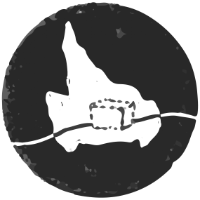Pillars
Working together with Indigenous governments and leaders in Labrador, the Labrador Campus is a strong, rich and unique hub of higher education in the province, nationally and internationally. We are developing the Campus with the following three pillars in mind:

People and communities
A Labrador Campus demonstrates the success of higher education that is led by people and communities, embedded in place, and focused on creating high-quality, locally appropriate and culturally-relevant programming.

Programming
All programming at the Labrador Campus is reflective of, and responsive to, Labrador peoples, lands, and waters.

Infrastructure
Establishing the Labrador Campus requires expanded research and educational infrastructure, increased faculty and staff, and new buildings.

People and communities
A Labrador Campus is about more than providing education in Labrador: It is about equity, social justice and Indigenous rights. It will reflect Innu and Inuit values in its development and implementation.
A campus in Labrador provides unprecedented opportunities for Memorial University to partner with the Innu Nation, the Nunatsiavut Government and the NunatuKavut Community Council to develop educational opportunities that meet Indigenous and Northern needs and priorities. It means that people can be educated in place, and access education that is reflective of their cultures and histories, languages and ways of knowing and doing.
Relational accountability
The governance structure of the Labrador Campus is both structurally accountable and responsible to Labrador, and holds a strong, local decision-making body. This local decision-making body sets the mandate for the Campus and connects with the rest of the university, and supports relational governance approaches, premised on Indigenous ethics and webs of relationships.
Connecting peoples, places, lands, and waters
Labrador has the people, places, lands, waters, resources, and momentum to support the continued development of Memorial University in Labrador, and to create a rich, diverse, inclusive, innovative, welcoming and robust campus that supports learners from Labrador, the Province, across the North, across the country, and internationally.
Labrador is on a long-term, upward social, economic, and self-determination trajectory, and a Campus of Memorial University in Labrador is a core pillar of this growth and development, and an exemplar of University-Community relationships in the country.

Programming
We are developing on-site, hybrid, and remote programming at the undergraduate, graduate, and postgraduate levels that is Indigenous-led and Northern-focused. Innu, Inuit and Indigenous ways of knowing, doing, and learning are central to all programming.
Labrador is an exceptionally rich, dynamic, and transformative learning environment, offering myriad possibilities for multi-, inter-, and trans-disciplinary teaching and learning in a wide variety of disciplines. Indeed, our remote, Northern location presents exciting opportunities for innovations and creativity in teaching, learning and educational initiatives, and will situate the Labrador Campus and Memorial University as a leader in Northern and Indigenous learning, as well as pedagogical innovations in technology and communications.
In partnership
The academic programming for the Labrador Campus builds on the teaching and learning strengths of the Labrador Institute and our key partners in Labrador. We also work in partnership with departments and units throughout Memorial University to develop various program opportunities.
Culturally-appropriate and locally-responsive
We are committed to providing culturally-appropriate and locally-responsive education and learning opportunities in Labrador. Learning and teaching will be framed by the places and peoples of Labrador, including the Indigenous peoples of the Labrador Peninsula, the Innu, and Inuit. Current and future programming is, by virtue, experiential, locally-situated, land-based, participatory, and rooted in what can be learned from the land and the environment.
Northern relevance
And while we are prioritizing meeting the needs and priorities of people in Labrador, we envision our programs will be highly attractive to people from throughout the Circumpolar North, as well as those in other locales interested in living and learning in the North.

Infrastructure
We have recently moved into a newly renovated Labrador Campus space at 171 Hamilton River Road in Happy Valley-Goose Bay. This space is home to a library and gathering area, classrooms, collaborative work spaces, office, and research infrastructure.
Our long terms goals are to design a campus facility in Labrador that is locally-appropriate and culturally-relevant. The facility will provide state-of-the-art learning environments, innovative teaching technologies that make learning accessible throughout the region, laboratory spaces, library and archives, conference facilities and student residences. We also envision outdoor learning spaces incorporated into the design of the campus, linking learners with the surrounding environment.
A place to learn and grow
This type of infrastructure investment is essential to provide high-end research and education options in Labrador and to house the new programs and will be an exciting new development for Memorial, for Labrador and for the North. A new facility is critical to the growth and development of a Labrador Campus, and to ensuring that learners, teachers, and researchers have the needed infrastructure to study, research, learn, and grow.